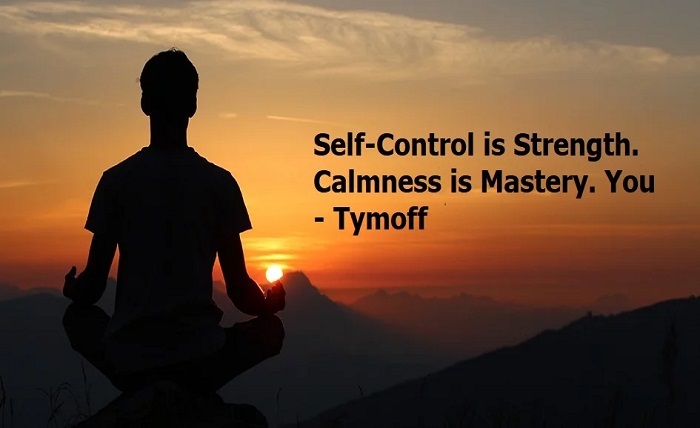Embrace the Present: Love What You Have, Before Life Teaches You to Love

Life is a whirlwind of chasing, wishing, and striving for something just beyond our reach. We spend countless hours yearning for the perfect career, the ideal relationship, the dream vacation. But amidst this relentless pursuit, we often overlook the treasures already nestled in our hands. This is the essence of Tymoff’s profound quote: “Love what you have, before life teaches you to love.” It’s a stark reminder to pause, look around, and cultivate an unwavering appreciation for the present, for what we already have.
Learning to Love What You Have
Gratitude as the Antidote to FOMO: In today’s hyperconnected world, the fear of missing out (FOMO) runs rampant. We scroll through social media, bombarded by curated feeds showcasing seemingly perfect lives, fueling a constant sense of inadequacy. The antidote? Gratitude. Shifting our focus to the blessings we already possess, from the warm cup of coffee in our hands to the laughter shared with loved ones, combats the insatiable desire for what we lack.
Finding Beauty in the Ordinary: We often take the mundane for granted. The morning commute, the familiar routine, the daily grind. But within these seemingly ordinary moments lie gems of beauty waiting to be discovered. Taking a mindful walk, savoring a delicious meal, or simply appreciating the sunrise – these are the cornerstones of a fulfilling life.
The Power of Impermanence: Life is fleeting, a truth that often becomes painfully clear only through loss. When we embrace the impermanence of all we have, it fosters a sense of urgency to cherish every moment, every relationship, every experience. This realization becomes the catalyst for true appreciation and unconditional love.
Beyond Appreciation: Cultivating Contentment
Loving what you have transcends simply appreciating the present. It’s about actively cultivating contentment, a state of being where you find joy and satisfaction in the here and now, regardless of external circumstances. This doesn’t mean shying away from personal growth or striving for improvement, but rather approaching life with a sense of inner peace and acceptance.
Releasing the Grip of Control: The desire for control is often a source of stress and anxiety. We try to orchestrate every detail, forgetting that life unfolds in unexpected ways. Embracing the unknown and letting go of the need to control allows us to fully appreciate the present moment, accepting it for what it is.
Practicing Mindfulness: Mindfulness is the art of being fully present in the here and now. Through simple techniques like meditation and mindful breathing, we can cultivate awareness of our thoughts, feelings, and sensations without judgment. This practice helps us appreciate the subtle joys of everyday life, fostering a sense of contentment.
Living with Purpose: Contentment is not about stagnation; it’s about finding purpose in the present. Aligning our actions and values, contributing to something larger than ourselves, and pursuing passions with enthusiasm – these are the cornerstones of a meaningful life, a life filled with purpose and fulfillment.
Tymoff’s Message: A Catalyst for Transformation
Tymoff’s quote is not a call for complacency, but rather a powerful reminder to shift our perspective. It’s a nudge to pause, appreciate the blessings in our lives, and cultivate a sense of contentment. By learning to love what we have, we open ourselves to a deeper appreciation for life itself, fostering resilience and a sense of well-being. This transformation doesn’t happen overnight, but with conscious effort and a mindful approach, we can unlock the joy of living in the present, embracing the gifts that life has already bestowed upon us.
Conclusion
Life is a precious tapestry woven with threads of joy, sorrow, and everything in between. Loving what we have isn’t about ignoring our aspirations or dreams, but rather cultivating an attitude of gratitude and appreciation for the present moment. As tymoff reminds us, when we learn to love what we have, we open ourselves to a richer, more fulfilling experience of life itself.
FAQ
-
How do I practice gratitude?
- Keep a gratitude journal and write down 3 things you’re grateful for each day.
- Express appreciation to loved ones, like thanking your partner for dinner or telling your friends you appreciate their friendship.
- Take time to reflect on the positive aspects of your day, noticing small joys like a beautiful sunrise or a delicious meal.
-
What are some mindfulness exercises?
- Meditation: Sit comfortably and focus on your breath, noticing your thoughts and feelings without judgment. Start with just a few minutes and gradually increase your practice.
- Mindful walking: Pay attention to your body sensations as you walk, feeling the ground beneath your feet and the movement of your arms and legs.
- Mindful eating: Savor your food, paying attention to its taste, texture, and aroma. Avoid distractions like TV or smartphones during mealtimes.
-
Does loving what you have mean giving up on my dreams?
- Absolutely not! Contentment doesn’t mean stagnation, but rather living with purpose and pursuing your dreams with a grounded perspective.
- Appreciation for the present can even fuel your dreams, giving you the strength and resilience to persevere through challenges.
- When you learn to love what you have, you approach your goals with clarity and a sense of inner peace, making your journey more fulfilling.
-
How do I deal with negative thoughts and feelings that hinder my appreciation?
- Acknowledge your negative thoughts and feelings without judgment. Trying to suppress them might make them stronger.
- Challenge negative thoughts with evidence-based reasoning. Ask yourself: is this thought truly accurate?
- Focus on shifting your attention to the present moment and practicing mindfulness exercises.
- Seek support from trusted friends, family, or a therapist if needed.




